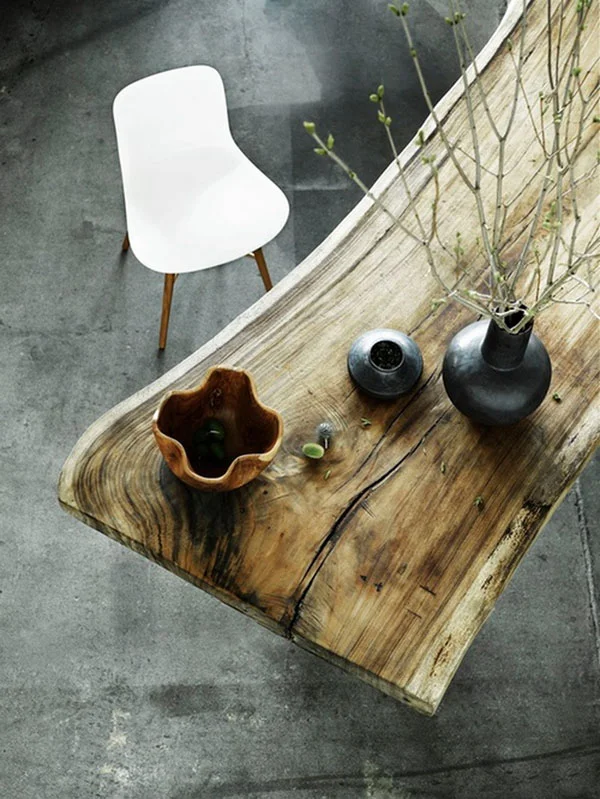The adapted Western image of Feng Shui looks rather glamorous - a sure ticket for more wealth, health and everlasting love. It seems to fit so very well with new age philosphies as described in books such as The Secret or Ask and it is Given. Do we really 'deserve' more and more? Where does this attitude come from?
The (probably natural) striving for a better life in a world where everything seems possible has lead us to a point where we stand in front of a huge disaster. We only have to switch on the news to see the consequences of our lifestyles.
This has always been a deep seated conflict ever since I started working with Feng Shui. Being seemingly far removed from its taoistic origin, Feng Shui is often seen as a new age quick fix for our problems. The Why seems to be less important then the How Can I Fix This Fast and Painless?
Contrary to Feng Shui there is very little literature about the Japanese philosophy of Wabi Sabi. Perhaps because it is hard to grasp its essence in words or rules. It comes over as rather mysterious, silent and introvert. It is rather about material than materialism. About the beauty of imperfection. About meditation, contemplation and the very precious feeling of melancholy (nowadays often labeled as 'depression' and quickly remedied with pills).
Beauty
Simplicity
Devotion
Dignity
Humbleness
Integrity
Words that have a different sound than
Wealth
Luck
Romance
Reputation
Friends with Influence
Success
(Words that one hears more often in the Feng Shui context)
As a Japanese friend described it to me:
'Wabi means the beauty to be found in quietness and simplicity. Sabi means the beauty of patina. Those two are the antithesis of materialism. So understanding Wabi Sabi means to know the beauty of frugality or to know the things that you have are enough. For example, the house is enough if you can shelter from rain and food is enough if you dont starve.'
Working with a space is in my eyes similar to meditation or therapy. A space can be a reflecting pool and one can cherish those precious moments of silent contemplation. Sunlight casting the shadow of leaves onto the wall, slowly moving as time goes by. The smell of freshly brewed coffee. A manifested poem.
Contemplation of the perceived good and bad, the little imperfection that might make you smile instead of an immediate urge to 'make things perfect'. Its the shadow where the mysterious can take place and that makes the refined facets of crystal and specs of gold sparkle.


